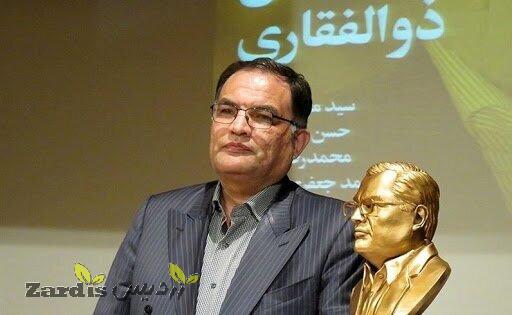TEHRAN – In a press interview, Persian language and literature professor Hassan Zolfaghari has said that the cultural cooperation between Iran and China has increased drastically after the 1979 Islamic Revolution.
Citing the recent 25-year document signed between Iran and China and the interest of the Chinese people towards Iranian culture, the professor stated that over 600 people have been trained in Persian language courses in China and more than 60 academics have graduated from Iran and returned to China for postgraduate and doctoral courses and are now working in the educational, cultural and media sectors.
Following the recent news coverage of the Iran-China 25-year cooperation, various narratives of the details of this cooperation started to surface on social media platforms with many critics labeling the document as China’s tool for dominance over Iran while many others hailing it as a new beginning for Iran’s socio-economic progress.
The Iranian professor with a long history of academic activity as a university lecturer in China believes that the expansion of Iran-China relations requires collaboration in educational and research fields, specifically the further development of the Persian language and literature in China as well as cultural programs, including joint meetings and conferences which will provide the platform for the expansion of cultural relations between the two countries.
According to Zolfaghari, there are currently 13 Persian language and literature course vacancies at universities in more than 10 Chinese cities including Beijing and Shanghai. The majority of the courses are in ‘Translation Studies’ and ‘Cultural Studies’ with at least 70 people graduating with a bachelor’s degree in Persian language and literature every year, while postgraduate and doctoral courses are also offered in universities of both Beijing and Shanghai.
Referring to the period before the Islamic Revolution in Iran, Zolfaghari said in the past the Chinese sent their professors to Afghanistan and retrieved their Persian language and literature teachings from Iran’s eastern neighbor but after the Islamic Revolution, this changed drastically with China’s cultural relations with Iran increasing 100 % in comparison to the period prior to 1979.
Due to the significant commercial history of the Silk Road, Iran and China’s relations go back to the past and have existed since the pre-Islamic periods and the Sassanid era, when the Chinese had to cross the Iranian route to reach Europe, which demanded bilateral relations and the exchange of ambassadors between the two countries from the very beginning to pave the way for the expansion of trade relations.
“Along with these trade relations, cultural relations were also formed both after and before Islam, especially during the period when the Mongols took power in China, China’s relations with Iran increased both for the spread of Islam and for the spread of the Persian language.”
Zolfaghari also stated that the spread of Islam in China was as a result of the spread of the Persian language and literature due to the fact that all Islamic scholars and promoters used the Persian texts and books for teaching Islam, and this has remained a custom in Chinese Islamic schools and seminaries where Persian textbooks are used for Islamic teachings.
The current memorandum of understanding signed between the two countries’ Ministry of Culture includes the translation of over 100 volumes of Persian and Chinese literature text, many of which have already completed with the collaboration of Chinese and Iranian universities, including ‘Shahnameh’, ‘Golestan’ and ‘Bustan.
It must be noted that due to the inevitable fact that both nations have an Eastern civilization, the similarities and traditions between the two cultures are countless and therefore there is interest from both nations to develop cultural relations, however, Zolfaghari noted that the weakness of institutions causes delays in the development of these relations, nevertheless, the grounds exist for the expansion of these relations, especially in the field of contemporary literature.
- News code 20137
- 279 View
- بدون نظر
Zardis news | The latest news of Iran and the world
تمامی حقوق مطالب برای Zardis news محفوظ است و هرگونه کپی برداری بدون ذکر منبع ممنوع می باشد.
طبق ماده 12 فصل سوم قانون جرائم رایانه ای کپی برداری از قالب و محتوا پیگرد قانونی خواهد داشت.
طراحی و اجرا: سامانه سایت ساز زردیس







